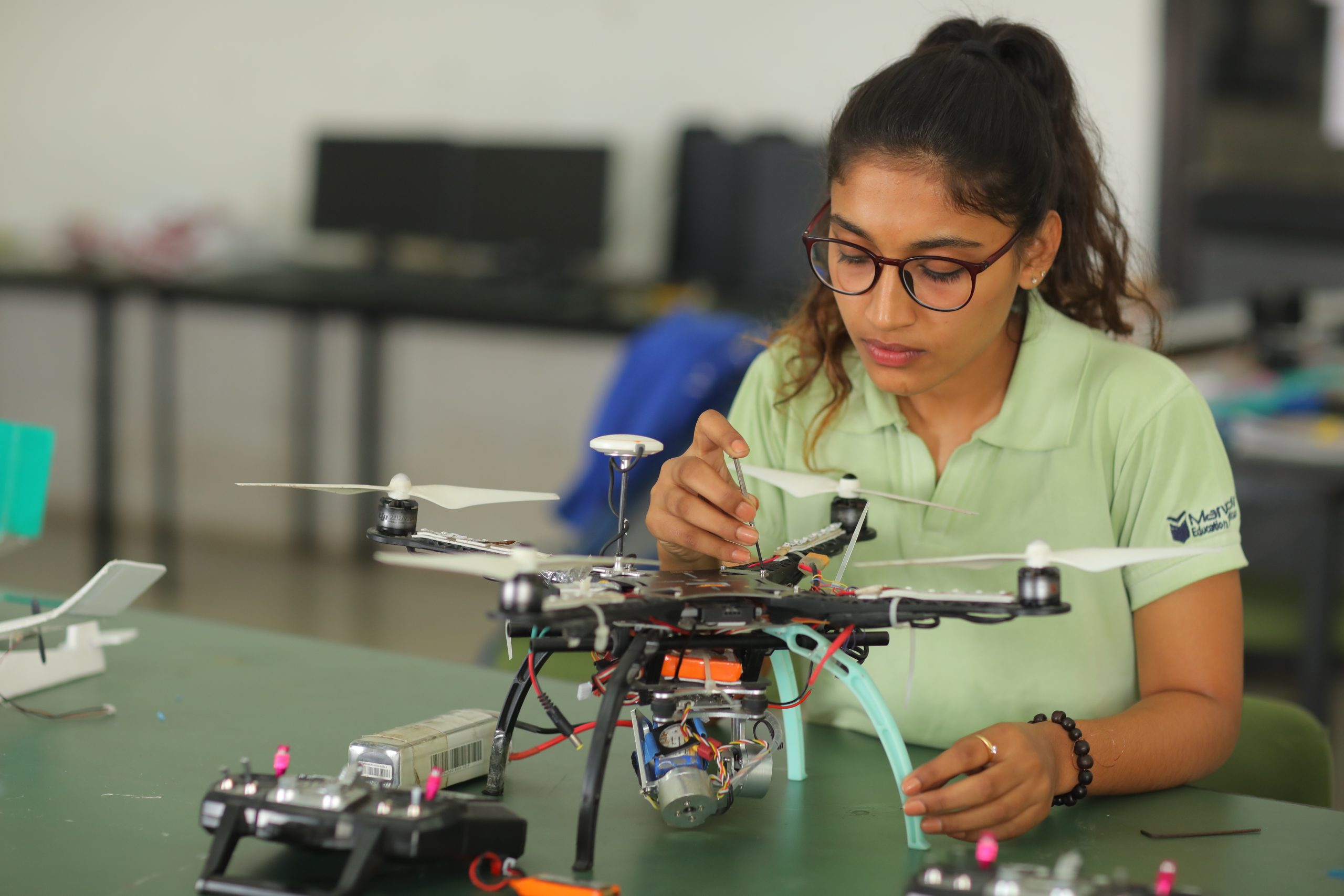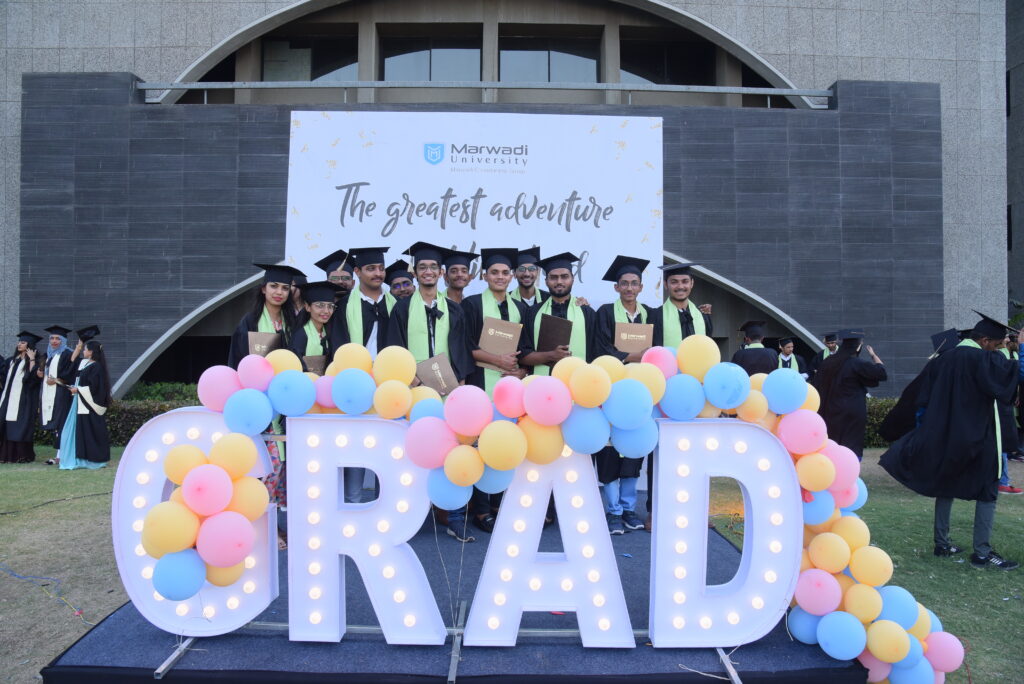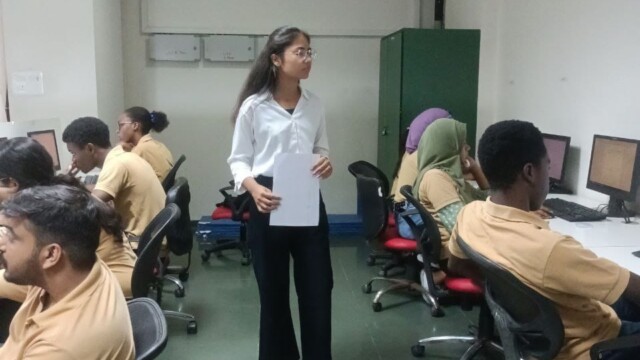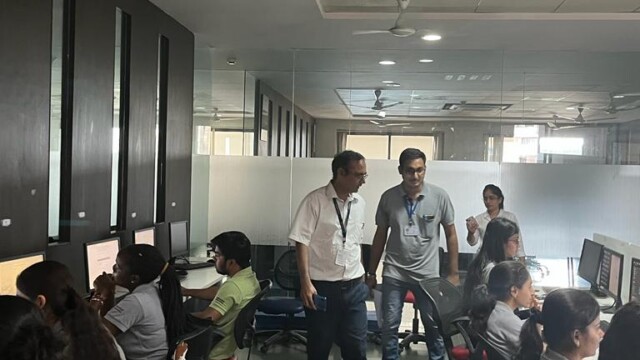A BSc in agriculture is an excellent path with ample career prospects. Prospective students should research its curriculum, eligibility, and potential for growth to make an informed decision.
Marwadi University is one of the most reputable BSc agriculture colleges in Gujarat, offering a perfect learning experience to the students.
Let’s explore more about the BSc Agriculture course!
BSc in Agriculture Course Overview
A Bachelor of Science (BSc) in Agriculture is a comprehensive undergraduate program that covers the principles and practices of agriculture. It includes courses in plant and animal sciences, soil management, crop production, agribusiness, pest management, agricultural economics, and sustainable farming techniques.
Students gain knowledge in agricultural technology and research methods, preparing them for careers in farming, agribusiness, agricultural research, or government agencies. The program typically involves practical training and internships to provide hands-on experience in the agricultural field.
Subjects
A Bachelor of Science (BSc) in Agriculture program typically covers a wide range of subjects related to agriculture and its various aspects. The specific subjects may vary from one university or college to another, but here are some common subjects that are often included in BSc in Agriculture programs:
- Agronomy: The science of crop production and soil management, including topics like crop physiology, crop breeding, and crop protection.
- Soil Science: Study of soil properties, fertility, and management techniques to optimize crop growth.
- Horticulture: Focuses on the cultivation and management of fruits, vegetables, and ornamental plants.
- Agricultural Economics: Examines the economic aspects of agriculture, including farm management, market analysis, and rural development.
- Plant Pathology: Study of plant diseases and their management.
- Entomology: The study of insects and their impact on agriculture, including pest control methods.
- Agricultural Engineering: Deals with the design and maintenance of agricultural machinery and equipment.
- Agricultural Extension Education: Focuses on the dissemination of agricultural knowledge and practices to farmers and rural communities.
- Agricultural Marketing and Management: Explores marketing strategies and business management principles in agriculture.
- Genetics and Plant Breeding: Covers the principles of plant genetics and breeding to develop improved crop varieties.
- Biotechnology in Agriculture: Discusses the application of biotechnology in crop improvement and pest management.
- Environmental Science: Addresses the environmental impacts of agriculture and sustainable farming practices.
- Farm Management: Focuses on the efficient management of farm resources, including labour, finances, and machinery.
- Irrigation and Water Management: Discusses the principles of irrigation and water resource management in agriculture.
- Agribusiness Management: Covers various aspects of the agricultural business, including supply chain management, finance, and entrepreneurship.
- Organic Farming and Sustainable Agriculture: Explores methods for sustainable and environmentally friendly agricultural practices.
These are just some of the subjects you may encounter during a BSc in Agriculture program. The specific curriculum can vary between institutions and may allow for specialization in certain areas of agriculture based on the student’s interests and career goals.
Eligibility Criteria
- 10+2 education with a science background (Physics, Chemistry, Biology, and sometimes Mathematics).
- Minimum aggregate score, usually around 50%.
- Some institutions may conduct entrance exams.
- Eligibility criteria may vary by institution and region.
- Consider reservation quotas for specific categories.
- The same is true for international students with the equivalent qualification of the above-mentioned points.
Career Options After BSc in Agriculture
After completing a BSc Agriculture course, you have a wide range of career options in both the public and private sectors. Some possibilities include:
Agronomist: Work to optimize crop production and soil management.
Farm Manager: Oversee farm operations, including planting, harvesting, and livestock management.
Agricultural Extension Officer: Help farmers adopt modern farming techniques and technologies.
Plant Breeder: Develop new crop varieties for improved yield and disease resistance.
Agricultural Research Scientist: Conduct research to enhance agricultural practices and sustainability.
Agribusiness Manager: Work in agribusiness firms involved in marketing, distribution, and processing of agricultural products.
Food Safety Inspector: Ensure the safety and quality of food products in the supply chain.
Agricultural Consultant: Offer expert advice to farmers, organizations, and government agencies.
Rural Development Officer: Focus on improving the economic and social well-being of rural communities.
Environmental Consultant: Address issues related to sustainable agriculture and environmental conservation.
These are just some of the many promising career options students can pursue after the BSc Agriculture course. The field of agriculture offers diverse career opportunities with growing importance in addressing global food security and sustainability challenges
Study BSc Agriculture Course at Marwadi University
For students planning to pursue this course, it is important to select the best BSc agriculture colleges. Marwadi University is a well-known name in the field of education, making it the most sought-after
BSc agriculture colleges in Gujarat. The expert faculties, detailed-oriented curriculum, and state-of-the-art facility make learning at Marwadi University a memorable experience!
















 International Airport
International Airport  Railway Station
Railway Station  GSRTC Bus Port
GSRTC Bus Port 


